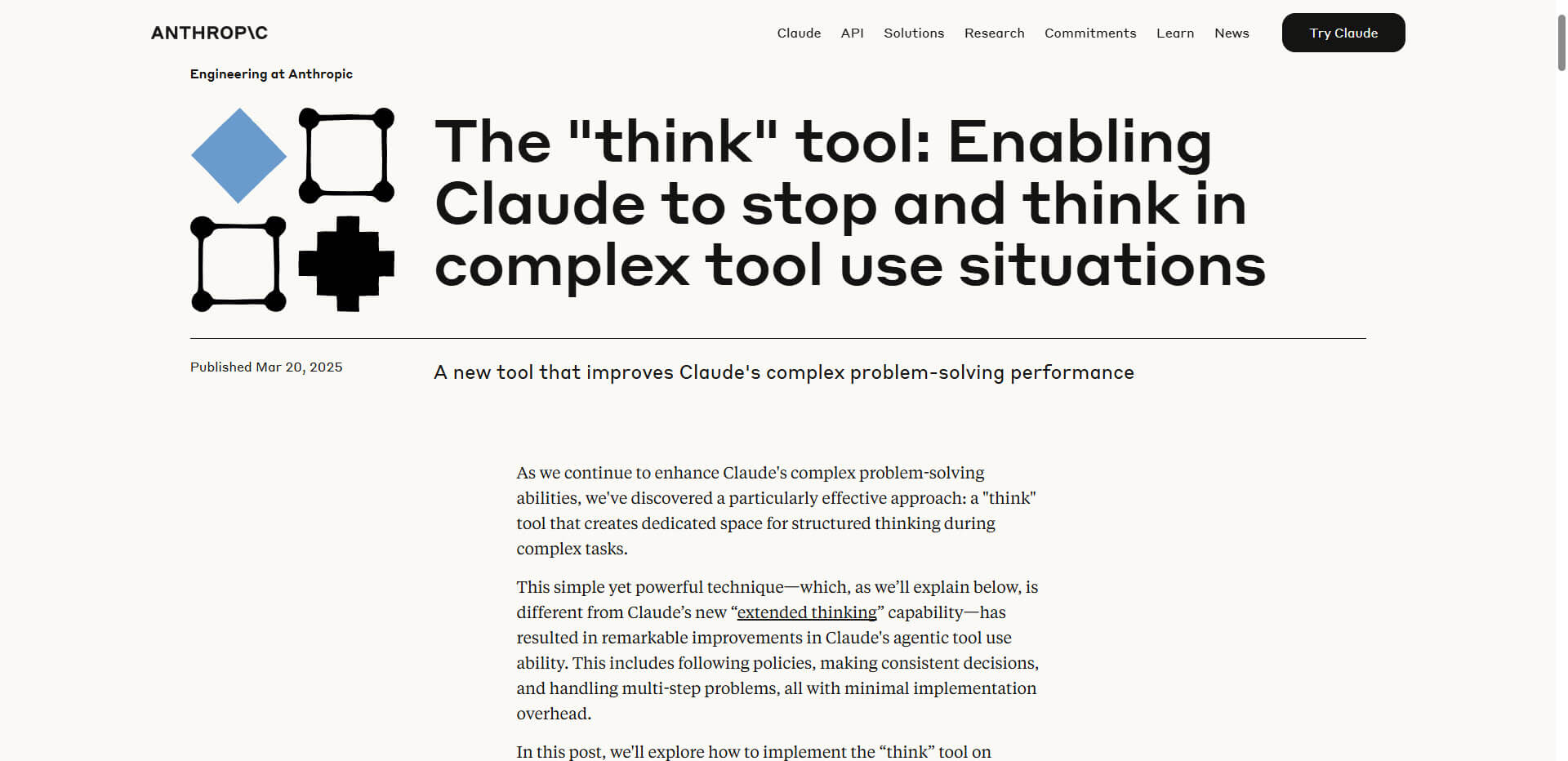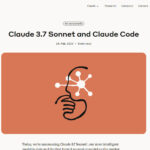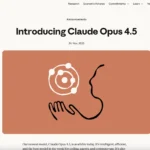Anthropic takes artificial intelligence to a new level: with the innovative “Think” tool, Claude can now solve complex tasks in a more structured and efficient way.
The AI landscape is developing rapidly, with a particular focus on reasoning capabilities. Anthropic has now made significant progress with the “Think” tool for its AI assistant Claude. This feature allows the system to take notes and break down complex tasks into smaller, more manageable steps. This significantly improves Claude’s problem-solving skills, especially for multi-step tasks and compliance.
The “Think” tool differs from Claude’s existing “Extended Thinking” function. While the latter takes place before answer generation, the new tool creates a dedicated space for structured thinking during complex tasks. It is implemented using a simple JSON command that tracks Claude’s thought processes.
Technical implementation and performance improvements
In the technical implementation of the “Think” tool, Anthropic has placed particular emphasis on minimizing implementation effort. It is worth noting that the function has no negative impact on performance when it is not actively used. This makes the tool particularly attractive for developers and companies integrating Claude into their systems.
The performance improvements are impressive: in airline customer service scenarios in the Tau Bench framework, Claude achieved a 54% improvement. Performance also improved by 1.6% in software engineering tests in the SWE Bench. These gains are particularly relevant for use cases where Claude needs to invoke complex tools, analyze tool outputs, navigate policy-intensive environments or make sequential decisions.
The most important facts about the “Think” tool
- Structured thinking: Creates a dedicated space for structured thought processes during complex tasks
- Improved problem solving: Significantly increases performance on multi-step tasks and policy compliance
- Easy implementation: Implemented via a JSON command that tracks Claude’s thought processes
- Performance leaps: 54% improvement in customer service scenarios and 1.6% in software engineering tests
- Pioneering: Part of a broader trend to improve reasoning capabilities in modern AI systems
- Best practices: Particularly effective for challenging use cases with compliance requirements or complex reasoning chains
Source: Anthropic







